Graham Reid | | 9 min read
The Strokes: The Modern Age

Gordon Raphael’s small and shabby studio rooms near London’s
classy Docklands have all the obligatory paraphernalia of most
recording studios: a deceased lava lamp, Iggy Pop and Hendrix albums
stacked up, and Houses of the Holy on a battered turntable.
One wall is covered by a swathe of material with an eye-abusing
design located somewhere between early Sixties pop art and late
Seventies kitsch, and an amp box which belonged to the late John
Entwhistle of the Who acts as table beside the computers. But most
telling is the framed gold disc, still shrink-wrapped, of a Strokes album tucked against the wall in the corner. There’s another, also
casually stowed, in the other room behind a couple of guitar cases in
this studio Raphael calls the Silver Transporterraum.
The focused, intense and amusing 46-year old is the producer who
kept the Strokes’ sound simple over an EP then two albums. Despite
the band trying out a couple of other name producers, it was the
little-known Raphael they came back to, twice.
From beneath an unruly halo of hair which looks like it’s been
slept in, Raphael tells his rock‘n'roll stories and why he is now
based some of the time in these run-down rooms in an even more
bedraggled-looking brick block in London.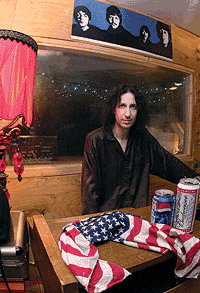
For a man who produced the elemental Strokes, his own tastes run
to prog-rock. Raphael spent seven years as the keyboard player in one
of America's great baroque, psychedelic rock bands, who were big in
Seattle and virtually ignored everywhere else. And it was because of
another son of Seattle that he came to England.
“l’ve always liked British rock ‘n’ roll but one of my
favourite artists is Jimi Hendrix, my favourite of all time, a
Seattle boy just like me, who tried to make it in America but no one
cared about until someone from England brought him over here and
launched him.
That always registered to me, so my ear and eye was always on
England.”
As a kid, the first live act Raphael saw was Janis Joplin, and
later he loved bands from the British punk and new wave school like
Siouxsie & The Banshees, the Cure and Bauhaus. He was in bands
from the time he was 13: “I played piano and electric organ, got
into psychedelic music and prog rock, was influenced by Zappa and
Bach, Bartok and Hendrix.”
In 1991, he joined Seattle’s alarmingly trippy Sky Cries Mary,
whose shows during the grunge years used oil lamps and trip-inducing
lighting. They were different and, in their own mad way, quite
brilliant. Their 1995 album, Return to the Inner Experience - with
their cosmic version of the Stones’ 2OOO Light Years From Home - is
still the best value in any bargain bin.
“Sky Cries Mary was the 24th band I was in,” says Raphael,
“but the first that ever got a record deal and get to tour. That
was a great moment and at that time being from Seattle you could do
no wrong. But we were nothing like Mudhoney or Nirvana. We had a girl
in the band, keyboards, a DJ and a psychedelic light show - which was
kinda different from four stocky boys in flannel."
Raphael amicably left the band after seven years, three albums and
an EP. Throughout that period he had made his own music, had heard a
young singer, Anna Mercedes, with whom he put together the band
Absinthee (“gothic and dark”), and they relocated to New York
after the Seattle scene withered. He expected things to happen for
Absinthee but they didn’t, so he threw himself into learning studio
production, got some gear and started going to clubs hustling bands
to record with him.
“One routine night out I saw two bands in a small club playing
to about 50 people, one was called Come On and the other was the
Strokes. I said I had a studio and invited them down but Come On --
the one I preferred -- didn’t show. But the Strokes came and
checked me out.
They told me sad tales about other studios that didn’t sound
good and that they’d never been that happy with what they got. They
weren’t that hopeful I was going to be any different, but my
basement studios had a more comfortable feel than the corporate
studios they'd been in which look like they are catering for cat food
executives. So that’s how l met them.
“They gave me a chance and we did three songs in three days and
that became the Modern Age EP, which we didn’t ever think was going
to be released, we thought it would get them to other people.”
The EP was released through Britain`s Rough Trade label and the
Strokes’ career was underway.
But for Raphael it was business as usual, hustling for production
work, until he got a call from the Strokes’ singer, Julian
Casablancas, inviting him to dinner.
"He sat me down at a restaurant and said, ‘A label in the
UK has got us this producer Gil Norton'. I said, ‘I know who he is,
the Pixies, Foo Fighters, he’s massive. He said the record company
wanted him to produce their next demos. Then he said, ‘But if you
tell me you are a better producer than him we’ll use you because we
want to use you and we like you. But if you tell me you're not a
better producer then we’ll use him’."
As a novice who hadn’t sold a record compared with Norton’s
10-year track history and millions of units shifted, Raphael could
hardly make that claim.
Casablancas said he had to do what was best for the band and
because Raphael hadn’t nailed up his claim, the singer called him
insecure and walked out.
“I thought, there goes a potential career out the door.”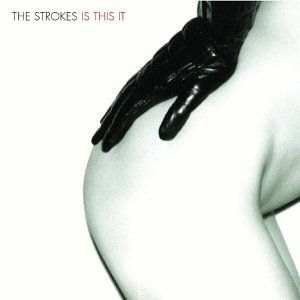
But three weeks later Casablancas was back. The Norton sessions
hadn’t worked out and he was depressed. Raphael heard the demos
(“You could hear the professionalism and cleanliness, that wasn’t
what l’d done with them”) and was back on board. The result was
the Strokes' 2001 breakthrough album, Is This It -- then came an
invitation to go to England, the land of his dream bands.
“After the album came out I got an e-mail from some brothers who
lived in Oxford who asked if it was possible for me to produce their
record. I thought it would be cool to record something in England.
“So I did a week of pre-production in their studio and then the
plan was to take me to a really big studio in Wales and then Abbey
Road to master. It was a big affair and I was excited. But the day
before we were going to go to the big studio they sat me down in the
kitchen and said, ‘We don’t think you know what you're doing as
producer and we don’t think you like our music’. So they fired
me.
“What they were doing was like early Yes and AC/DC - but there
was something anal and neurotic about them. In the week we were at
their house, no girls came over, I couldn’t find anything to smoke
and it seemed like they were scrutinising my every move.”
And so Raphael didn’t produce Radiohead but, because he now had
time to kill, went to London and set himself up in a studio.
In 2002 he recorded 30 bands, hit the clubs and met people when he
hung out with the Strokes at the Brit and Brat awards. But for most
of the two years after Is This It, Raphael rarely spoke to the band
and started to feel nervous they were about to go into a studio again
without him.
He called Casablancas and went to his apartment.
Casablancas - whose intellect and ears Raphael respects immensely
-- was in a serious mood, felt he needed to write better songs, and
was troubled by the expectations put on the band. Raphael says it was
disappointing to see someone who wasn’t enjoying his success but
worried about the next stage. The Strokes planned to record demos
with Nigel Godrich, who had produced Radiohead, but a month later
Casablancas was inviting Raphael to New York to take control for what
became their second album, last year’s Room on Fire.
The irony of Raphael being rejected by Radiohead, then winning the
job over their producer is not lost on him.
Since then, Raphael has put his energies into a few artists
loosely "signed" to his Shoplifter Records.
The idea of doing a label had been with him since the Seattle
days, when he recorded dozens of local bands and says he mentioned to
a friend that he was thinking of starting a label. Three months later
the friend – Jonathan Poneman -- had started SubPop and taken the
bands Raphael had mentioned.
Raphael isn’t going to let that happen a second time.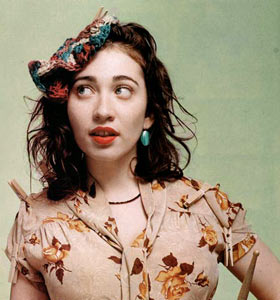
Today he flits back and forth to New York, and has a star in the
wings with Russian-born NYC raised singer Regina Spektor who has
opened for the Strokes and recorded something with them.
“She plays piano like Mozart, sings like Joni Mitchell and the
lyrics are like the Mouldy Peaches, she was so amazing I had to make
an album with her.”
He also helms his own band, Crystal Radio, has a potential winner
in Kill Kaneda, and now has major labels knocking at his door. In the
hour we chat his phone rings constantly. Blondie is mentioned at one
point.
Raphael is a complex and contradictory character: his background
and first love is pomp-rock (he plays a new track he’s working on,
it’s sprawling and very mid-70s with Yes and Focus its reference
points), yet he has made his name with a raucous and minimal
rock‘n’roll band.
He runs a monthly club night in London, is a regular contributor
to London's rockfeedback.com, has irrepressible energy, and a grab
bag of good stories to tell. He doesn’t even bother to mention he
played keyboards for the Psychedelic Furs for a while. On his label
website he describes himself as a producer and space-pilot.
But Raphael has seen opportunities pass him by and is determined
it won't happen again, so he’s flinging himself, almost
indiscriminately, into recording many bands cheaply -- you suspect in
the hope of finding another success like the Strokes.
But he has always loved being on stage which is why Crystal Radio
is a priority.
“Right now it’s looking good,” he says in his rapid fire manner full of typically ebullient American confidence. Then he adds in a tone which could sound slightly desperate. “If l don’t do my music now I might never get another chance.”

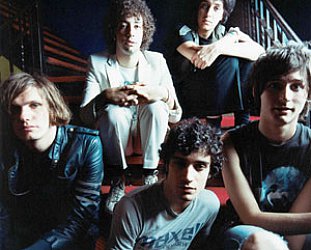
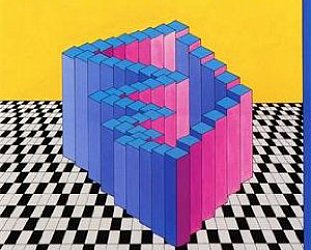
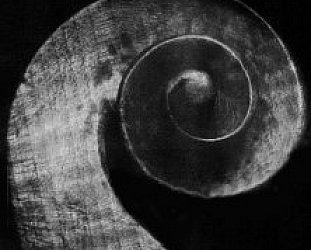
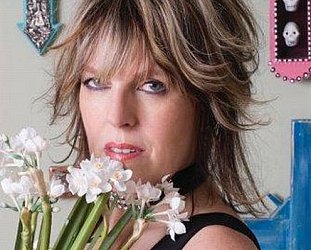
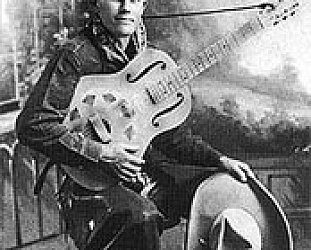
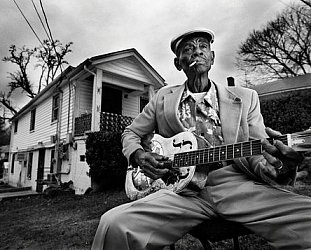
post a comment